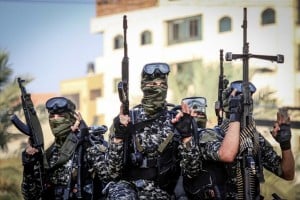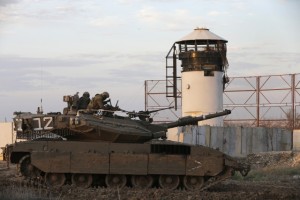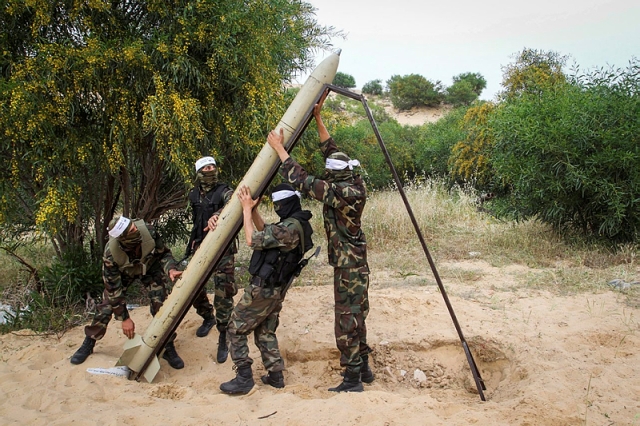While Hamas is not expected to attack Israel in the near future, the IDF is closely monitoring the terror organization’s efforts to rebuild its military might for an eventual assault on the Jewish State.
By: JNS.org and World Israel News Staff


Hamas Special Forces in Gaza. (Aaed Tayeh/Flash90)
Eyeing another round of violence against Israel, the Hamas terrorist organization, which rules the Gaza Strip, is sparing no effort to enhance its arsenal and train its terrorists, and especially its elite “Nukhbah” terror unit, a senior officer in the IDF’s Southern Command told reporters Thursday.
In a briefing with military correspondents, the officer said that Hamas’ Special Forces currently include some 20,000 troops.
Hamas also strives to develop its drone and naval capabilities, including terrorist divers, he said, adding that the terror group is actively pursuing improved rocket-launching capabilities.
But Hamas has yet to rehabilitate its pre-2014 firing abilities, which were significantly crippled during Israel’s Operation Protective Edge, he added. Its efforts are hindered by a shortage in supply of arms and raw materials, mostly because the Egyptian military destroyed most of the smuggling tunnels connecting Gaza to the Sinai Peninsula.
Hamas is currently focusing on developing its short-range projectile fire apparatus, which proved more effective during the summer 2014 war with Israel, as it challenged the Iron Dome missile defense system’s interceptors.
The officer said the Islamist group was trying to increase the amount of explosives its arsenal of short-range projectiles can carry, as well as to develop mid-range rockets that could “escape” the Iron Dome. One of the innovations said to be in development are “barrel bombs” capable of packing up to 250 kilograms (550 pounds) of explosives.
“There is concern of miscalculation on Gaza’s part, meaning Hamas suspects we are planning some sort of operation, therefore they’re on very high alert and they lend great importance to any statement by the IDF. They’re concerned we might strike Gaza to affect the situation in Judea and Samaria,” said the officer, adding, “Hamas saw the [months-long terror wave] in Judea and Samaria as a strategic opportunity it hoped to seize. It is very disappointed by the fact the situation in Judea and Samaria has stabilized.”


Israeli forces on the border with Gaza. (AP/Tsafrir Abayov)
Thirty-five rockets have been fired from Gaza at Israel since the end of Operation Protective Edge by other factions in the Strip. Most of these rockets either fell in open areas or were intercepted. Hamas, the official said, was quick to arrest those who violated the ceasefire. Hamas has established a border-protecting unit that enforces the ceasefire ad prevents terror attacks against Israel, he said, as Hamas is not yet ready for a confrontation with Israel.
According to the IDF officer, there are three factors that could lead to the renewal of fighting in the south: One of the sides wrongly reading the situation because of a specific incident or declaration, escalation in light of incidents in Judea and Samaria, and the Palestinians tiring of the Israeli military blockade and rising up against it.
The senior IDF officer further stated that defeating Hamas will be achieved by “offense, not defense” measures, and that the IDF must take the initiative and not get dragged on.
With all that in mind, the officer stressed that there is no immediate threat of war in the south at the moment. The assessment now is that there is not going to be an escalation of hostilities on the southern border in the near future and that the current atmosphere of calm will continue.

